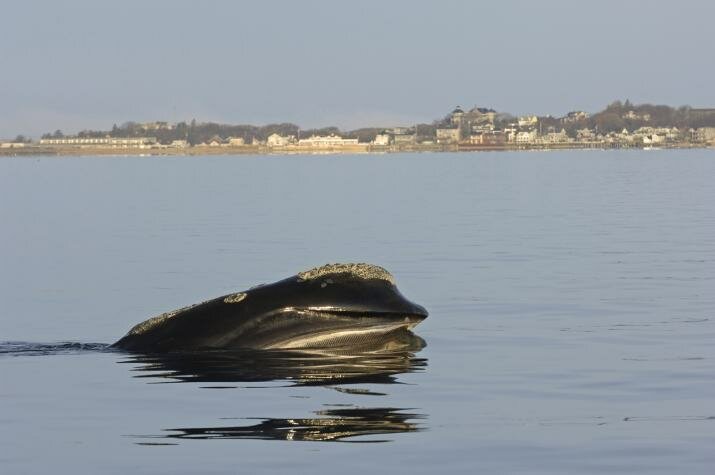The National Ocean Policy at 5 Years: Ocean Planning 101

Ocean planning is a hot topic here at Conservation Law Foundation, and, while we have been plugged into the process in New England for a few years, newbies understandably find that the term “ocean planning” can, for lack of a better term, confuse more than clarify.
For those passionate about the health of our oceans (you, I bet!) but confused about what ocean planning means for New England, consider this post your “Ocean Planning 101” crash course.
An executive order
“America’s stewardship of the ocean, our coasts, and the Great Lakes is intrinsically linked to environmental sustainability, human health and well-being, national prosperity, adaptation to climate and other environmental changes, social justice, international diplomacy, and national and homeland security.” — Obama Administration Executive Order, Stewardship of the Ocean, Our Coasts, and the Great Lakes
On July 19, 2010, President Obama issued an executive order calling for the creation of the National Ocean Policy, a historic decree with a two-fold intent. The National Ocean Policy sheds light upon the growing tension between our ocean’s precious natural resources and the increasing amounts of human development under the sea (check out this video from the Surfrider Foundation, which explains those tensions in detail.)

Northern Right Whale (Eubalaena glacialis) in Cape Cod Bay, Provincetown in the background. Photo by Brian Skerry.
The President’s executive order offers a solution to these growing tensions – one with widely historic implications: to use ocean planning as a way to understand how Americans rely upon our oceans for energy, food, trade, security, and recreation, and to define how the nation’s oceans can continue to support our collective needs while also allowing for marine species and ecosystems to thrive.
President Obama’s call to action was further bolstered by the final recommendations of the Interagency Ocean Policy Task Force – made up of 24 senior-level officials from executive departments, agencies, and offices across the Federal government and led by the Chair of the Council on Environmental Quality (CEQ) – calling for ocean management plans at the regional level throughout the country. The Northeast is one of the nine designated regions.
A “regional planning body” was appointed for each region, with membership consisting of federal, state, tribal, and ex officio representatives from fields ranging from fisheries management, to homeland security, to public health, transportation, energy, and coastal zone management. The Northeast was the first region out of the gate, building a diverse regional planning body reflective of the states, agencies, and tribes unique to the region, and leading the charge to finish the nation’s first regional ocean plan by the end of 2016.
Regional planning progress
Much has happened since the Northeast regional planning body first met more than two years ago. In order to understand the complex interplay between the region’s multiple ocean uses and impacted ecosystems, thousands of data layers were collected, using Geographic Information System (GIS) maps, to display the distribution of maritime trade, fisheries, keystone species, important ecological areas, recreation, etc. These are currently being reviewed in order to show areas of conflict between uses, and to better foster recommendations for a wiser ocean use for each sector – and to find a balance between human uses and healthy marine ecosystems.
The resulting plan, projected for completion in late 2016, will unify New England’s states around improved ocean management, with better data and the establishment of important ecological areas at the heart of the process.
We have a busy year ahead of us. The Regional Planning Body will meet two more times – in October and November – ahead of the January deadline for a draft plan. The public will get the chance to comment on the draft in April 2016, with the final plan expected to be submitted to the National Ocean Council in June 2016. (The National Ocean Council is charged with implementing the National Ocean Policy, according to the recommendations provided by the InterAgency Ocean Policy Task Force.)
While the Regional Planning Body has done an exceptional job throughout the process, it’s critical that stakeholders – that includes you! – also come to the table to provide input, to ensure that the final plan accurately represents the diversity of New England voices and uses for the iconic Northern Atlantic. The October meeting of the Regional Planning Body is intended as a public forum to hear your feedback. We hope to see you at the next regional planning body meeting during this very crucial year!
In the meantime, keep an eye out for our upcoming series, Faces of Ocean Planning, in which you’ll hear firsthand from people from across New England about why ocean planning is important for their organization, business, or city.
Another excellent resource for learning about ocean planning is the Northeast Ocean Data Portal, where you can find interactive maps and see the data yourself.
Still have questions about ocean planning? Ask them in the comments section below and we’ll answer them in future posts here.





Recent Comments